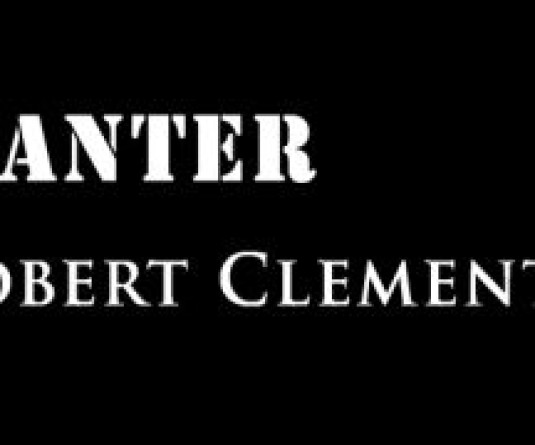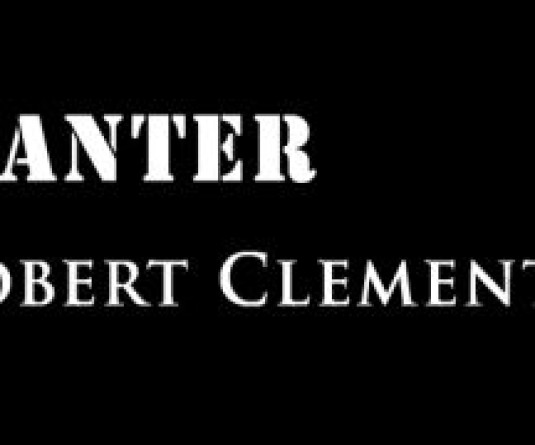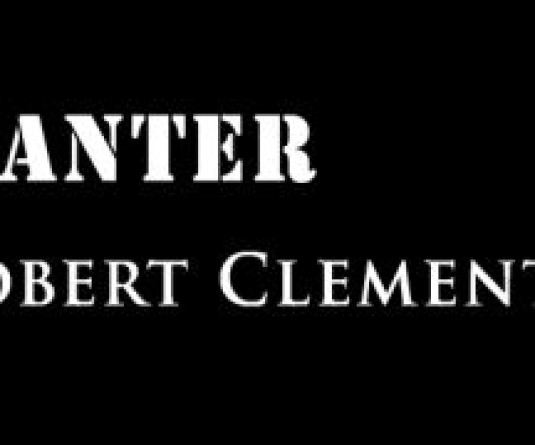
The jigsaw puzzle in terms of permutation, tactical and strategic mergers and alliances of the national and regional political parties to a large extent is over. The picture for the 16th Lok Sabha elections, 2014, is unfolding with greater clarity as the dates for the polling are coming closer. The media viz., print, audio and visual in their own ways play important roles in disseminating information with diverse opinions and analyses. Rallies, interactive sessions, interviews, statements and utterances keep flooding the dailies, periodicals, TV channels and radio stations. The private research groups keep publishing the opinion polls. The hype has touched the peak. In addition, technology contributes immensely in creative ways to capture the voters’ attention.
Undoubtedly, the 2014 Parliamentary Elections has generated awareness than the previous elections particularly amongst the middle-classes and the young voters. The toiling masses of our country fervently exercise their franchise, since they have faith in the work of the government. They do believe that despite the governments’ non-performance for them the government is the final arbitrator which could translate their hopes and aspirations in real terms. India’s Parliamentary Democracy is alive because of the masses who in their own way vote differently in the elections for the State Governments and the Government at the Centre. World’s largest democracy is going to the polls for the formation of government at the Centre with a mandate of “Good Governance”.
In this election all the political parties are focusing on governance. It is not because the political parties are concerned about it, but the people want and thus expect. So the political parties are forced to capture and capitalize on it, failing which they are doomed. It is apparent that all the political parties in one way or the other have failed to govern with “governance principles”. In the past two decades the whole country as such embroiled with all sorts of scams and allegations. At last the citizens of this country came to a realization and awareness that they would no longer tolerate the bungling of the government at the Centre, and so went all out to reform and cleanse the functioning of the government.
There have been many interventions by the civil society that rattled the political establishments especially at the Centre. Citizens could intervene more effectively and authentically only at the time of election that too every five years. Peoples’ representatives in the Lok Sabha by and large have failed to represent the problems of their electorates. Many in their own ways involved in amazing wealth and mustering power. A critical point at this juncture is: in our democracy once we elect our representatives the citizens have no provisions for calling them back, irrespective of their performances. While on the other they continue to represent their constituencies till the term expires. Hence, hardly are they pressed to take up the concept of accountability seriously.
Citizens at large in this election want a corrupt-free transparent and accountable government with good governance at the centre. This time the masses and the people of this country have given the political parties a clear and categorical mandate. Nonetheless, we have hardly witnessed good discourses on the basis of programs, policies, and so on. Mudslinging and attacking the candidates on personal levels in indecent manner have become the political culture. Criticisms by the candidates of political parties have thus far been leveled not on policy levels, but on personalities. This type of behavior we did witness in the last Parliament sessions where there were hardly any intelligent debates. We did witness speakers were shouted down by the opponents, mikes were flung around and walkouts by members belonging to different political parties for each and every issue. Often the Parliament was adjourned while tabling bills and taking up important issues, policies and programs. There were frequent uproars leading to antinomianism. So, it was very difficult to discern the merits of the issues and problems that were looming the country.
Policies and programs were not analyzed based on the facts and impacts, but only on superficial understanding of the issues that curbed the working of Parliament. Ideas have to be allowed and discourses should be entertained, so that the views on innumerable problems could perhaps be clarified and viewed objectively. The culture that prevails in our democracy is when the ruling party proposes for instance policies or programs, the opposition would not allow for detailed discussions and debates, and thus abruptly and randomly opposes for the sake of opposing. It is the same vice versa. This sort of logic prevails in most of the governments at the state levels. Whichever party forms the government they want to undo the good works carried out by previous government. Without getting into the merits of the programs and works, both the ruling as well as opposition parties oppose each other. This election is clouded with all sorts of personal animosities and vendettas stooping down to most vulgar and unparliamentarily levels.
In this election one of the frequently used terms is development. Each and every politician is talking about development. West Bengal Chief Minister Mamata Bannerjee is claiming that Bengal’s development model is better than Gujarat Model which Modi claims as the best paradigm on the whole and for the entire country. But for former Chief Minister of Delhi Kejriwal it is just the opposite. He has exposed Modi by citing Modi’s own constituency is in deplorable condition especially the roads and connectivity to rural Gujarat. Even the schools do not have proper facilities and Public Health Centre in Modi’s constituency that gives pathetic look without any basic requisites. According to Kejriwal, the Gujarat Model is over-hyped and highly exaggerated, since there are no visible transformations have taken place in the State of Gujarat. Rahul Gandhi is emphasizing more about empowering the toiling masses from below. No slogans and big rallies, but interactions with the commoners. Modi criticizes Rahul that his party had failed on all counts and certainly not for poor.
However, the citizens of India will be exercising their franchise based on diverse perceptions. People of India have their own ways of discerning the political reality around them. Their perceptions have always been balanced. They are based on several factors. The rural masses in particular have always shown their wisdom while exercising their franchise. Added to these factors, in this elections the middle-class and educated young segments are aware of their rights and roles in the polity. My prediction in this election is that there shall be a massive turn out which would certainly help the democratic process. Our democracy has come of age and certainly maturing. In spite of several problems Indian democracy survived and continues to show vibrancy and dynamism.
It is unfortunate that during elections the political parties spend huge sums of moneys to buy votes. The electorates in most cases fall prey to them. Corruption is manifested in many forms especially at the time of elections. People are wooed and lured overtly and covertly. There are diverse means and methods that the agents of political parties employ to secure the votes. In general people fall to it. We may have taken oaths and campaigned for “corruption free” elections. Many would have promised that they would abide by the oath. When it comes to translating their oath into votes they vote for those from whom they have taken mo ney or some favors or assured of something after winning. Why do we backslide? Why don’t we keep up to our promises? Why do we sell our constitutional right electing a candidate who is not of our own choice? Do we act on the dictate of our conscience? Have we kept aside our conscience and act on the dictates of moneys, positions and power?
The term “conscience” means “one’s knowledge of oneself as judging and acting which accompanies one’s judgments and actions.” Keeping this definition in mind we should vote because once the candidates get elected for who we voted if they fail to perform and govern and thus become ruthless or useless, we cannot change and as a consequence regret. At that time a series of questions that emerges: What have I done? Who was I when I acted in such and such a way? Why did I commit such a blunder? For some favors or money or position I have sacrificed my citizenry right? What do I do with these, be it gold or silver or money? So, every morally relevant action of a person puts one into a relation to oneself and thus concerns that person’s identity. All of us are ethical beings and our lives revolve around certain ethical principles. All religions teach us how to be morally good. No religion teaches to submit one’s conscience for the sake of money, power, and other incentives. So, “conscience” helps us to judge our decisions and actions.
Unlike animals, we are endowed with common sense coupled with reason that enables not only recognizes the goals of possible actions, but also develops opinions or discerning capacity towards them. As rational beings why don’t we exercise our rationality in voting? Why do we submit ourselves for temporal happiness by sacrificing a larger good? The fact is we are in most of the situations act in particular ways propelled by our instantaneous impulses, rather than reasons. If our actions are impelled by reason then our actions will grapple on causes or consequences. For every action there are causes leading to positive or negative consequences. Consequently, the implied maxim of our moral action while exercising our franchise is: “vote for a non-corrupt honest person who would do good work,” is almost equivalent to the rule “follow conscience” which implies “follow reason”.
We are going to vote with increased awareness backed by our conscience and reason. To a question which is always being asked: why are we voting for this candidate or that candidate and how do we decide? It is decided and arrived at on the basis of our moral decision being judged by our conscience. Basically “conscience” is nothing but “judgment on our actions”. Conscience can never be buried and set aside. It is always in us and within us, and thus gives us signals while making decisions. We do make decisions in big and small ways, but certainly what is the basis on which we make decisions. Most of us are illumined by our conscience. We may think that we could outwit our conscience and do whatever we want. But it is not possible, because we are accountable, and thus answerable. It pricks for which our conscience is responsible. Days, months, years may pass by but whatever acts that we did without listening that went contrary to our conscience remains. They are deeply seated in our sub-conscience. Flash backs are indicative of our actions that we failed to give proper hearing to our conscience.
As said by B.R. Ambedkar, all the citizens of our country ought to be considered as equals before the Constitution on which our democracy lives and resonates. A maxim said by him is relevant and appropriate as we are engaged in the process of choosing and exercising our franchises should go in line with: “One Person, One Value, and One Vote”. The principle of equality becomes important. No one should be treated having more value or less value before our Constitution since as citizens we are going to exercise our basic right to vote. More importantly, we should never abdicate the very essence and spirit of our constitutional and citizenry right in return of money or for favors or obligation. If we abdicate the right to vote it amounts to submitting ourselves to lesser value which is antithetical to rationality and belief systems. We are expected to invoke our conscience and apply our rational mind while deciding and exercising who is the right candidate, to which party he or she belongs.
But it is that easy in our democracy. There are several instances across the country where people who went to vote had to return since their names were not found in the list. In other cases where their names were enlisted, but could not vote, since they were intimidated or coerced. However, these incidences occur to deter our resolve and resilience. We certainly believe in freedom and democracy. In spite of these obstacles and hassles the citizens of our country face continue to vote. Certainly because of those who defy the undemocratic forces keep alive the Spirit of Democracy. 2014 Elections is clearly poised for a battle for India. The battle the political parties fight is for different things. But we should discern the type of India we want. We should be careful in our discernment and certainly invoke our conscience and exercise our votes judiciously. Let us be cautious while voting. We ought to be diligent and prudent. To whosoever we vote it should be ethically justified, morally driven and consciously grounded.
“A good decision is based on knowledge and not on numbers.” –Plato





